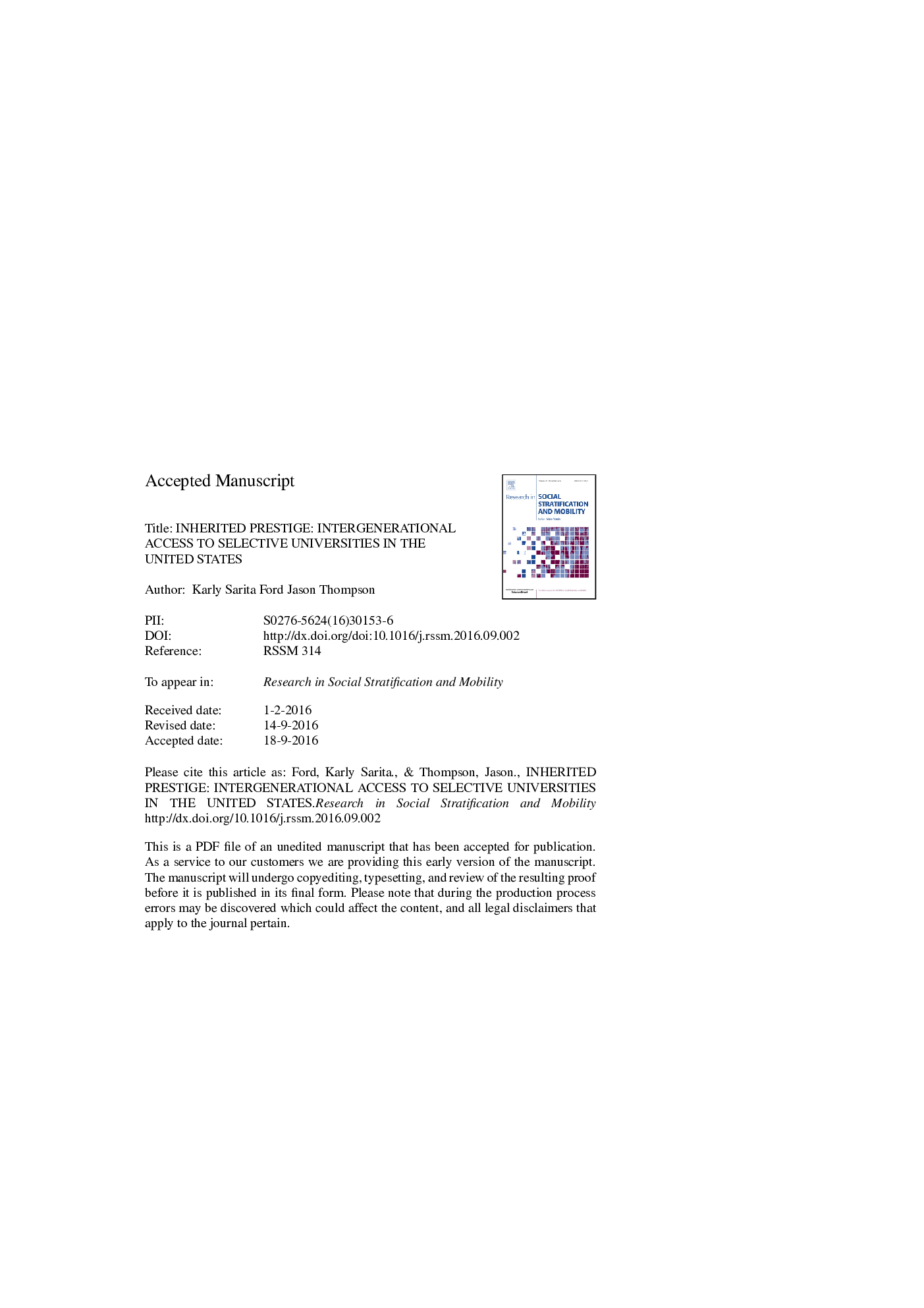| Article ID | Journal | Published Year | Pages | File Type |
|---|---|---|---|---|
| 5106611 | Research in Social Stratification and Mobility | 2016 | 52 Pages |
Abstract
Given the many economic and social benefits conferred upon the graduates of selective universities, it is important to understand the avenues through which socioeconomically advantaged students access selective postsecondary institutions. Prior research documents that parental level of education, occupation, and income are associated with the likelihood that a child will attend a selective university. Our study builds upon this literature in examining whether the selectivity of a parent's undergraduate degree contributes to a child enrolling in a selective university, independent of family income, ascriptive characteristics, and child academic ability. We find that having a parent who graduated from a selective university is associated with a three-fold increase in the likelihood that a child will attend a selective university, even when we control for a variety of family advantages. These findings shed further light on the role of education in processes of social mobility and intergenerational inequality by showing that elites transmit status to their children through the type of institutions accessed in addition to the level of education attained.
Related Topics
Social Sciences and Humanities
Economics, Econometrics and Finance
Economics, Econometrics and Finance (General)
Authors
Karly Sarita Ford, Jason Thompson,
